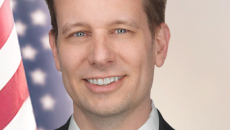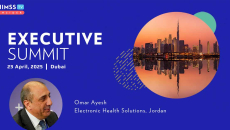Interoperability
SPONSORED
The combined deployment of an enterprise-wide electronic health record with business and clinical analytics helped a health system deliver better patient care, among other benefits.
With VNAs, universal viewers and patient portals, the Cleveland health system is enabling easier sharing of images with the providers and patients who need them, says Dr. David Kaelber, chief health informatics officer at MetroHealth.
SPONSORED
Oracle Health's Romel Khalife discusses the company's AI-enabled data platform, which helps clinicians identify care gaps and manage disease-screening programs and can connect EHR and genomic data to improve patient outcomes.
Concord Technologies' AI-powered cloud fax tool enables fast, secure clinical data exchange and extracts EHR data from transmitted documents, says the company's CEO William Cavanaugh.
The physician and software engineer will hold dual titles as Assistant Secretary for Technology Policy and National Coordinator for Health Information Technology.
One new tool can automate clinical registry workflows for clinicians, which reduces manual data entry. Tom Liddell, CEO of Harmony Healthcare IT, explains more.
More than 1,000 hospitals and 22,000 clinics are now exchanging patient data through Epic Nexus, the EHR giant's health information network operating under the national interoperability framework.
While 70% of Jordan's population is covered by the national health system, Omar Ayesh, Electronic Health Solutions' CEO, says the country is building a national HIE to integrate and share data from private care providers.
Deloitte researchers say IoT technologies could make for more agile health systems and better patient outcomes – if challenges to more widespread adoption can be resolved.










